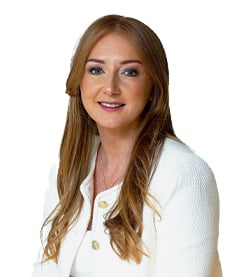Finance Bill 2025
Summary
Published following Budget 2026, the Finance Bill 2025 sets out the legislative framework for the tax measures announced on 7 October. The Bill contains several market-focused measures aimed at supporting enterprise, innovation and growth.
Shorter than last year’s 216-page Bill, it updates corporate, capital, VAT, housing, and employment taxes, clarifies Budget Day announcements, and introduces reforms to support investment, housing delivery, and compliance. The Bill must now progress through the Oireachtas committee stage before expected enactment into law by Christmas.
Corporate taxes: Incentives for investment and innovation
The Bill delivers meaningful adjustments to support enterprise and align with global tax standards in a post-BEPS world, tightening the system to keep pace with a fast-moving global landscape while protecting the state’s reputation for stability.
Participation exemption rules are modernised — the look-back period for group restructurings falls from five to three years, and Irish affiliate restructurings no longer disqualify dividends from exemption. Dividends from non-treaty jurisdictions can now qualify where non-refundable withholding tax is suffered, broadening access for multinational groups.
The R&D Tax Credit increases from 30% to 35%, with the first-year instalment threshold rising from €75,000 to €87,500. Simplified employee-time allocation rules should make compliance easier, while the higher rate signals stronger Government support for innovation.
The Bill also advances Ireland’s commitment to Pillar Two and DAC 9. Updated definitions for deferred-tax assets, securitisation entities and minority-owned entities reflect OECD guidance. Enhanced information exchange under the Multilateral Competent Authority Agreement will further strengthen transparency and alignment with international practice.
Capital taxes: Supporting growth and succession
Capital taxes receive targeted reliefs aimed at entrepreneurs and family businesses. These changes modernise long-standing reliefs so that capital and succession planning can continue smoothly, even as asset values and ownership models evolve.
The Capital Gains Tax Entrepreneur Relief lifetime limit increases to €1.5 million, though previous disposals remain capped at €1 million for aggregation. This extension rewards sustained business ownership and reinvestment.
In Capital Acquisitions Tax, Business Asset Relief now covers assets intended for use within six years, offering greater flexibility for planning. Disposal rules are clarified to ensure relief is retained if proceeds are reinvested within 12 months — a practical improvement for succession and restructuring.
VAT changes: A basket of changes beyond the 9% VAT rate
The bill confirms a widely anticipated VAT-rate reduction to 9% for food-led hospitality from 1 July 2026, a move designed to ease cost pressures and boost competitiveness. The reduced rate also extends to hairdressing but excludes hotels, short-term rentals and tourist attractions.
Other VAT measures include:
- The extension of the 9% rate on gas and electricity to 31 December 2030.
- Application of 23% VAT to hotel meeting-room hire (non-accommodation) from 1 January 2026.
- Removal of remaining VAT waivers on short-term property lettings following the High Court judgment in the Killarney Consortium v. The Revenue Commissioners case in December 2024.
- Extension of VAT exemption for financial services management to cover the new Automatic Enrolment Retirement Savings System from 1 January 2026.
- Reduction in the flat-rate addition for farmers from 5.1% to 4.5% from 1 January 2026.

Housing: Targeted tax measures to boost delivery
Housing remains central to the Government’s agenda, with measures to support new supply and channel tax policy towards delivery, a critical pressure point.
The sale of completed apartments now benefits from a 9% VAT rate, effective 8 October 2025. However, forward funding contracts remain subject to 13.5%, creating pricing anomalies and affecting housing bodies. This is a key matter we are discussing with Revenue and will continue to raise through the Committee Stages as the Bill progresses.
A new corporation-tax deduction allows developers a 125% deduction for constructing qualifying apartment blocks (minimum 10 units), capped at €50,000 per unit, to a potential maximum tax benefit of €6,250 per unit.
Other housing-related measures include:
- Rental income from designated cost rental dwellings is exempt from corporation tax from 8 October 2025.
- Residential Zoned Land Tax (RZLT) exemptions for landowners submitting rezoning requests by 1 April 2026.
- Replacement of appeal-based deferrals with full exemptions during planning appeals.
- Clarified 12-month deferral for newly granted planning permissions.
- Updated estate-administration rules deferring RZLT post-death.

Financial services: Some progress, but work continues
As ever, the devil is in the detail. Beyond the Budget headlines, the Bill reveals important measures for Ireland’s Financial Services sector, including changes to exit taxes, reporting obligations, and the treatment of cross-border structures.
The exit tax rate on funds, life policies and equivalent offshore structures falls from 41% to 38%. Investment Limited Partnerships (ILPs) benefit from a dividend-withholding-tax exemption and simplified compliance, i.e. filing Form ILP 1 replaces the annual partnership return.
The interest-withholding-tax exemption now extends to group entities in any treaty jurisdiction, widening eligibility for international structures.
For Pillar Two purposes, the Bill also clarifies the treatment of securitisation entities that are fully consolidated into a multinational entity.
The Bill also implements the OECD Crypto-Asset Reporting Framework (CARF), requiring crypto-service providers to register and report from 2026 — a clear move towards transparency and global alignment.
Further consultations are expected later in 2025 and into 2026 as Ireland continues to refine its tax framework. Stakeholders in the Financial Services sector should assess how these changes may affect their operations and prepare for the new compliance landscape.
Employment taxes: Flexibility and extended reliefs
The employment-tax measures are limited and aim to sustain competitiveness while supporting workforce mobility. These updates recognise shifting labour dynamics and cost-of-living pressures, offering phased incentives to help employers and internationally mobile talent adjust.
For company cars, a new A1 category for zero-emission vehicles applies from 1 January 2026, with temporary OMV reductions extended: €10,000 in 2026, €5,000 in 2027 and €2,500 in 2028.
The Bill confirms the extension of the Special Assignee Relief Programme (SARP) to 2030, which is welcome. However, the minimum qualifying salary rises to €125,000 from 2026. From an administrative perspective, employers will now have 180 days from the date an employee arrives in Ireland to notify Revenue of an employee’s intention to claim the relief. Relief is limited to four years, rather than five, if this certification is made between 90 days and 180 days after arrival. The employer SARP return submission deadline is now extended to 30 June, from 23 February.
The Foreign Earnings Deduction (FED) is extended to 2030, with the Philippines and Türkiye added to the list of qualifying countries, and the maximum relief increased to €50,000. There is also a welcome change to the definition of a qualifying day, such that an employee is no longer required to spend three consecutive days working in the relevant state for the day to qualify.
The Key Employee Engagement Programme (KEEP), a tax advantageous scheme for share options for employees and directors of certain qualifying SMEs, is extended to 31 December 2028 (subject to State Aid approval). The Bill does not provide for any changes to the qualifying conditions, which are complex, and there has been limited uptake in the scheme to date.
Stamp duty: Refinement and market focus
The stamp-duty refund scheme for residential development is extended to 2030, with longer build-out timeframes (36 months for large-scale developments) and faster multi-phase repayments to improve cash flow.
Reliefs for farmers are extended and clarified, while the Euronext exemption is replaced with a broader exemption for companies with a market capitalisation of €1 billion or less traded on EU-regulated markets.

The Finance Bill 2025 delivers a mix of targeted reforms, technical clarifications, and strategic incentives. While many measures align with Budget 2026 announcements, the Bill also introduces important refinements, particularly in housing, corporate tax, and financial services.
Further amendment and refinement are expected as the Bill progresses through the legislative process in the months ahead.
Our tax teams are available to help you assess the implications for your business and ensure full compliance.
Our Budget insights
View more





Our Budget experts




